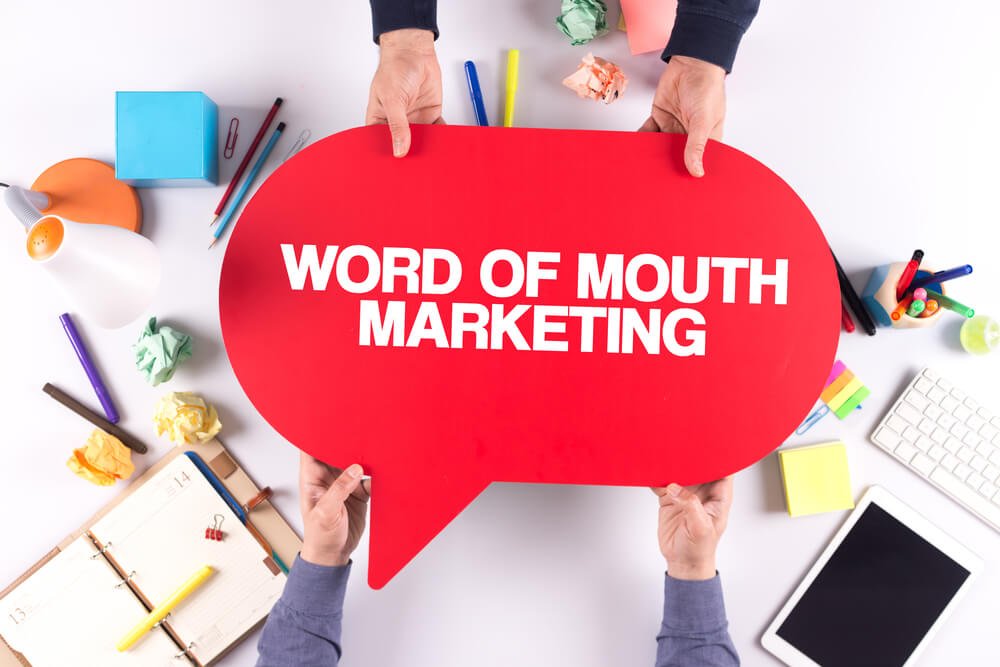There are over 30 million businesses in the country today. That’s a tight market, making it important to get every advantage available, especially in marketing.
One of the oldest methods is word-of-mouth communication. It’s still around because of how effective it is in boosting brand awareness and getting customers.
Word-of-mouth can get you good and bad press, and what you get depends on how you handle your business.
4 Benefits of Word-Of-Mouth Marketing
Word-of-mouth communication brings your business many advantages. Here are four benefits you enjoy when you’re on the good side of word-of-mouth marketing.
1. You Build a Good Relationship with Your Customers
Building trust between your brand and your customers is important for your business’s success. This boosts their confidence as they conduct business with you. Selling products will be harder if you don’t build trust with existing customers.
A good word-of-mouth marketing strategy involves getting personal with your customers. Talking to the owner of the business often makes customers feel special. It also makes them think the owner cares more about its customers than making a profit.
Customers who know you care and do your best for them let others know both in person and on social media and review websites. It also helps foster a strong sense of community. Building trust this way will be slow, but it guarantees you make a good impression.
2. It Costs Less Than Other Marketing Strategies
Most businesses jump into social media marketing because it’s cheap. It’s all about posting something and hoping it goes viral. Businesses hope their latest post, meme, or video becomes the next hot thing in social circles. It’s a huge long shot and if it’s a dancing cat – and you don’t train cats to dance – it’s suddenly worthless when the next dancing cat video pops up.
People buy from people they like and trust. Nothing you do will move the trust needle-like testimonials from a lot of satisfied customers. What they say, people believe; what you say, not so much. When did you see any company advertise: “Our products are made from the cheapest crap we can get, they don’t hold up well and we’re proud of it!”?
Didn’t think so.
Your employees can also help you with this marketing trend by talking about your management style. Treat them right, with respect, as valued members of your team, and be uniquely good at how you go about it. Uncaring managers or mediocre methods don’t deserve any special praise from your employees.
If you get all these elements right, you’ll find that you don’t need to spend anything.
This is, in theory, free marketing, since all you need to do is ensure the pieces fall in place.
3. Quick to Spread Among Your Audience
A great perk with word-of-mouth marketing is that it can boost traffic to your business, helping you grow faster. This can happen in as short as two to three days depending on how active your customers are.
Word-of-mouth marketing is most effective in small, local or even virtual communities. This is because people in these areas mostly know and trust each other.
Getting people to say good things about your business gives you both credibility and attention. This makes it important to accommodate them when they need something. “Nothing leaves a lasting impression better than helpful deeds.”
It also helps that the internet allows for a broader reach. This makes it possible for people outside your local area to find out about your business, too. It’s like getting two birds with one stone.
Your business might become so famous with the locals that it will become the go-to place they recommend whenever tourists come through.
4. It Offers Amazing Short-Term Scalability
Once the word gets around about your business, you’ll see more opportunities open up. Businesses know that jumping in on a popular trend is a great move to increase profits.
This could entice other businesses to approach you for partnerships. You might also get sponsorship deals pushing you to launch or host an event. Some of these may even come from an area outside your business’s reach.
Consider some type of partnership with a complementary business. Choosing the right partnerships can boost your business to levels you never expected as your service or product delights the partner’s existing clients and their client base discovers you.
4 Examples of the Downside of Word-of-Mouth
Word-of-mouth can deliver a lot of benefits, but many things can go wrong as well. Take heed of the following four examples of the downside of negative word-of-mouth:
1. You Can’t Control What People Say
Even when you accommodate your customers, what they say is still up to them. There’s no guarantee that they will say anything about your business to their peers. That’s still better than them saying negative things, right?
The problem is that they may still say something negative about your brand. They may have found something unpleasant in your business. This can get your brand in a lot of trouble depending on how they spin their stories.
You want to address the situation as soon as you hear about the story. Damage control can be effective if done immediately. Show you care, have done your best to help, and have been more than reasonable. If you’ve done your part, people will realize the negativity is not deserved.
2. Results Are Unpredictable
The results of word-of-mouth marketing are always unpredictable. This makes them non-viable as a launch strategy. The fate of your business is too important to rely on just customer word-of-mouth as a launch strategy. Better strategies include Kickstarter and similar platforms, social media ads, etc.
There’s also the fact that even if people talk about your business, there’s no guarantee that people will check it out. This makes word-of-mouth viable only as a secondary form of marketing.
It’s better to use other marketing methods for people to find out about your brand. This helps make sure your business gets noticed by as many people as possible as fast as possible.
3. It’s Easy to Get Bad Press
Another bad aspect of this marketing method is that it’s hard to trust people with your business. They can praise your business as fast as they can ruin it. Some people can give your business some bad press for no reason.
This is even harder because of the internet. Popular review websites like Yelp are places where word-of-mouth marketing rules the day.
Some people know this and use these websites as weapons against businesses.
People with malicious intent can leave unfair reviews when they don’t get what they want. (There have even been cases of competitors posting negative reviews.) The good thing is that you can dispute these reviews, but you must act fast. The few minutes where the review is up may be enough to dissuade others from doing business with you.
4. Even Employees Can Turn Against You
Even your employees can give your business a bad reputation. This often happens when they’re displeased with something like their paycheck or how you micro-manage them. They often post their complaints on popular social media platforms to make sure people see it.
This can paint a bad picture of your business. For some, that’s a good enough reason to stop supporting a business.
When this happens, you can report it as a post that seeks to defame an organization. You can also leave a comment explaining your course of action. Prioritize correcting your image with what you say.
Caution: We suggest you get competent legal advice about what you say; you may expect to see what you post used in a court of law should you get sued.
How to Do Effective Word-Of-Mouth Marketing
Knowing how to make your word-of-mouth marketing strategy effectively reduces the chances of the negative effects. Here are three of the best ways to implement word-of-mouth in your marketing strategy.
1. Engage with Customers Who Review Your Business
People love a business that has a responsive owner. You can use this to your advantage and engage with your customers who talk about your business. People often post about their experience with your business on social media, so check out different platforms.
When you find one, place a comment on the post. Express a calm demeanor when writing your comment.
Doing this prevents more negative comments from adding to the problem.
You can also do this if you have a comment section in your business. This is better since you can manage the comments that appear on your business website.
2. Go Viral
Going viral is the best word-of-mouth marketing strategy. This is because people will always have opinions about your viral post. Regardless of whether it’s positive or negative, their opinions will help your post reach more people.
Going viral is not as hard as people think. All you need is a way to stir emotions in your audience. It should also align with current trends.
Need some good examples? Check out the viral sensations from Baby Yoda, a character from the show The Mandalorian, or the Ice Bucket Challenge.
3. Have a Strong and Appealing Social Media Presence
Social media is the most important factor in word-of-mouth marketing. Having a strong social media presence ensures that you can answer the questions people will have. This too makes people think you’re a better business owner.
This is where you want to focus on positive branding. Learn to craft a story about your marketing efforts and how your business gives back. This helps you paint your business in a better light in the long run.
Doing this lessens the effect of any negative review about your business.
It will make it easier for you to clean up after any mess or drama that happens.
Learn the Power of Word-of-mouth Communication Today
Word-of-mouth communication can be good or bad for your brand. It all depends on how you handle your business and the social media and internet drama that comes out of it.
But why stop here when there’s so much more to discover? And for absolutely nothing, we can talk, business owner to business owner about your situation. We’ll give you some great insights and takeaways that will help. Contact us or call us at (281) 217-4951. We’ve got great group coaching or one-to-one coaching, executive coaching as well as training sessions and assessments. Let us know how we can help you and your business.



